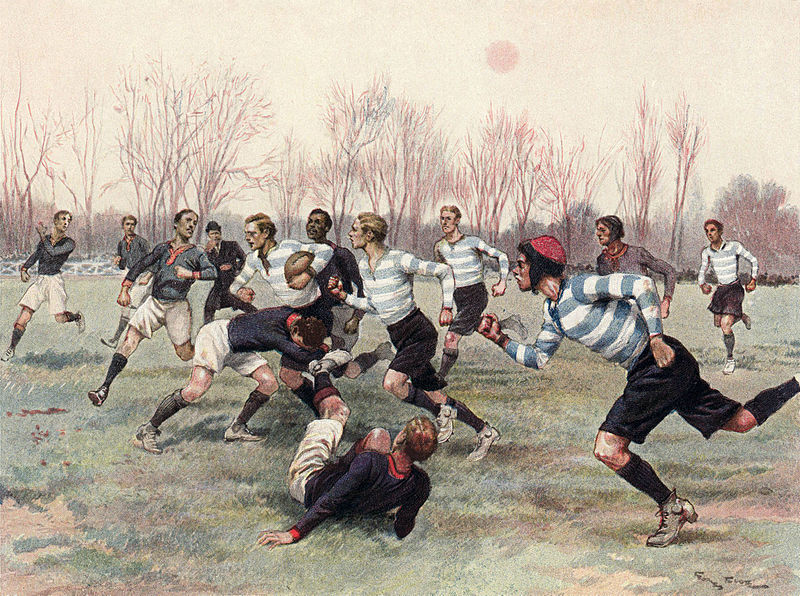This test is run by .
Note that your final mark will not be saved in the system.
Note that your final mark will not be saved in the system.
3.1.3.1 Emergence of globalisation of sport (industrial and post-industrial) Typeit
Target Level
C
Running Total
0
0%
Attempt
1 of 3
Type the correct answers into the spaces. Fill all the spaces before clicking ‘Check Answers!’

The Revolution is a loose term that can be applied to the shift from agriculture to industrial centres that started in the late eighteenth century, facilitated by developments in transportation and manufacturing throughout the nineteenth century. It is closely associated with urbanisation, which is the migration of predominantly societies to urban areas and ways of life. Industrial Britain can be referred to as the time after 1780, with post-industrial society lingering till around 1900.
Social factors that influenced the characteristics of, and participation in, sport in industrial and post-industrial Britain:
- Three-tier class system – This era in British history was characterised by the emergence of the class, such as factory owners and doctors. A social divide could still be observed between the upper class and lower class, where the former maintained an status to treat sport as a pastime, whereas the need to be compensated for missed time at work gave the latter a , paid status.
- Transport and communication – The improvement of road conditions and railways, as well as the development of the steam engine, improved the between different parts of Britain. This allowed sports to be played on a national scale as part of structured leagues and competitions.
- Provision through factories – The changing working conditions from agriculture to industry led to the development of trade-specialised factories. The long hours of laborious work meant there was little free time for the lower or working class to participate in sports during the week. This was overcome by the introduction of Saturday play, where workers were allocated a on Saturdays to participate in sport and were compensated in the form of -time payments by the clubs to make up for the missed hours of work. Many association football clubs still in existence today were formed around the factory workers in heavy industrial towns and cities, such as the steel workers of Sheffield United and iron workers of West Ham United.
- Changing role of women – In pre-industrial Britain, females were expected to fulfil their societal roles as stay-at-home housewives or full-time carers for children, and so their opportunity for participation in sport was limited. Moreover, they were viewed as the sex and so strenuous sports were perceived as being unsuitable and improper for women to be involved in. However, industrialisation challenged the traditional role of women in society and their skills were soon noticed, particularly as employees in the textile industry. The domestic expectations of females were fading, yet the introduction of factory work reduced the leisure time available for sport. Moreover, the Victorian image of females prevented participation in pre-industrial sporting recreation such as smock races.
- Improving education – The middle class were willing to apply education to sport and lifestyle through newly established schools. It was here where began to be formulated and were taken to , where scholars from across the country would come together and combine all regional variations in a 'melting pot' to form a standardised set. (NGBs) were established and developed national leagues and tournaments, such as the FA Cup by the Football Association in 1871 and The Championships at Wimbledon, whose sport has been maintained by the Lawn Tennis Association (LTA) since 1888.
- Churches and local authorities – The Church was a central part to the development of sport throughout the industrial and post-industrial periods. The clergy often controlled large areas of land which was offered as a location where sports could be played. In return, it offered the clergy the opportunity to engage with the local community and promote – a philosophical belief that sport can be used as a means of developing important moral values and commitment to health. Sport was seen by the Church as an opportunity for social control, helping people to spend less time in the public house and engage in less drunken, unruly behaviour.